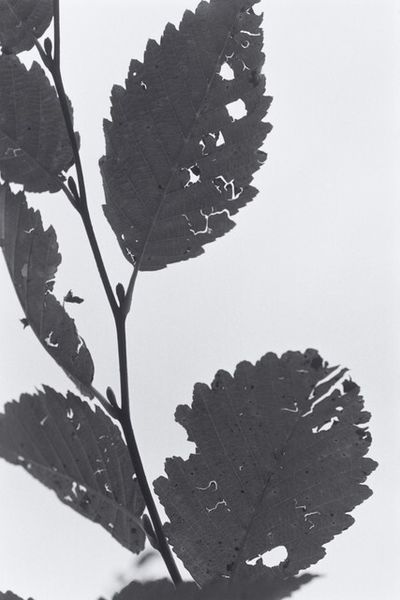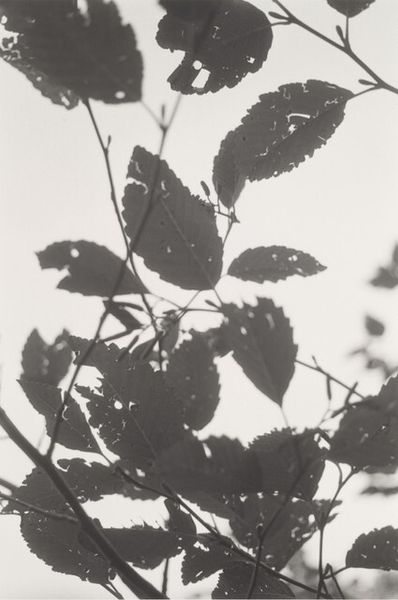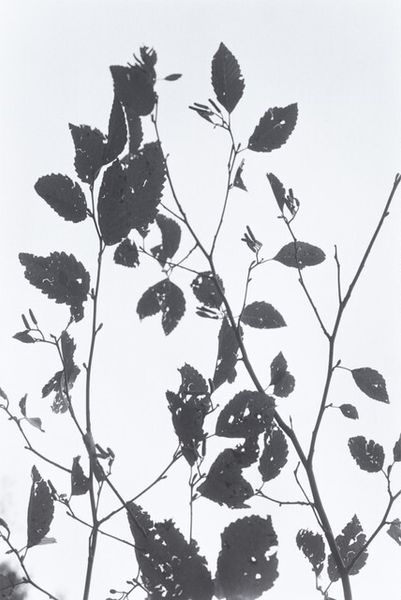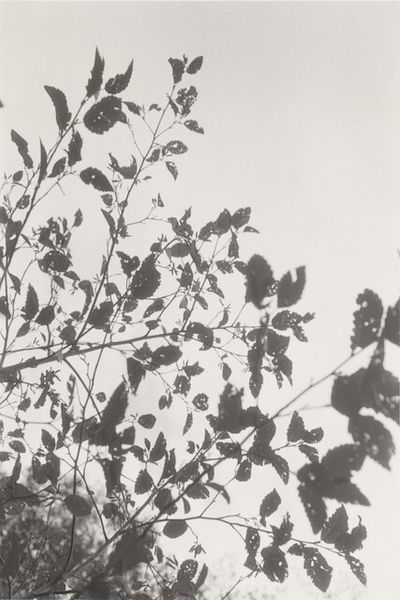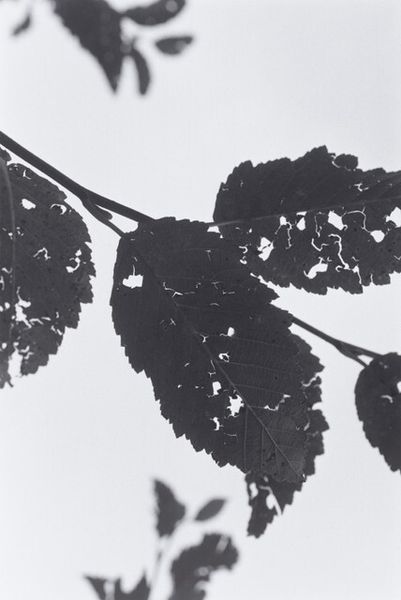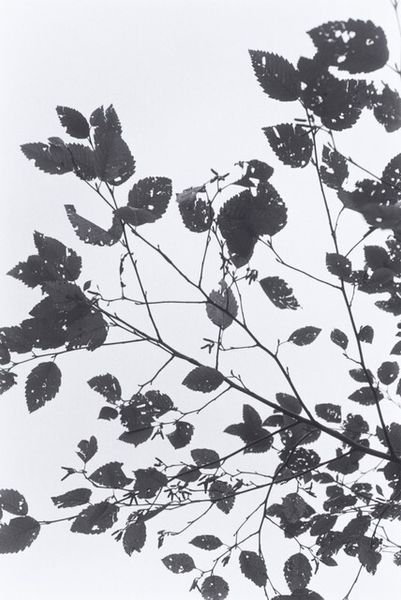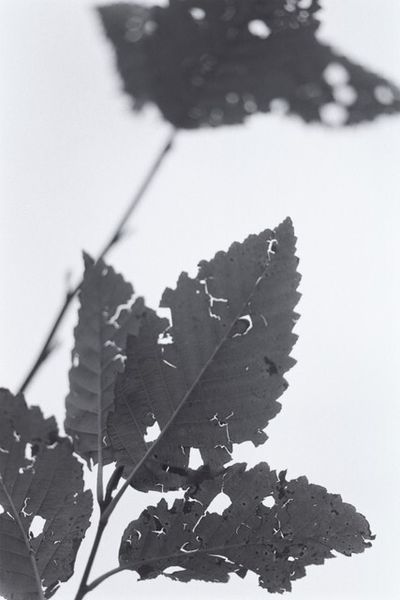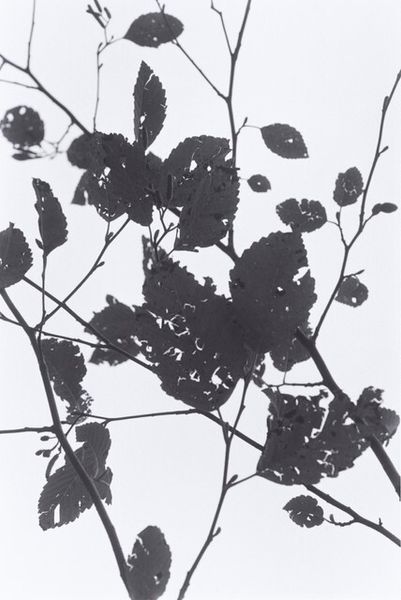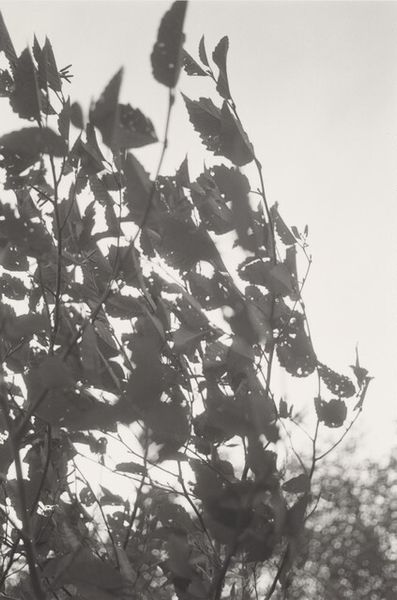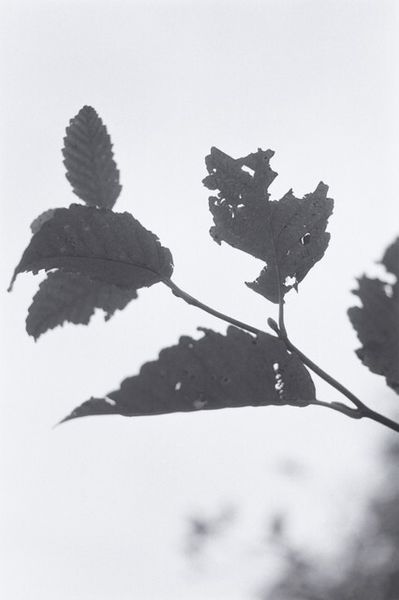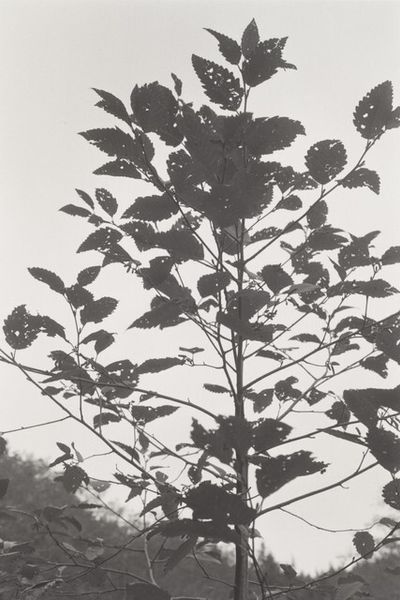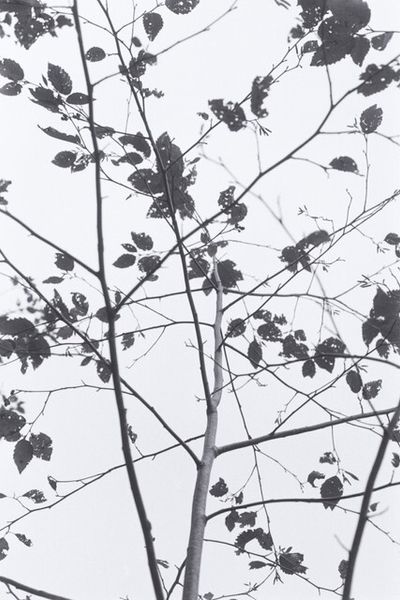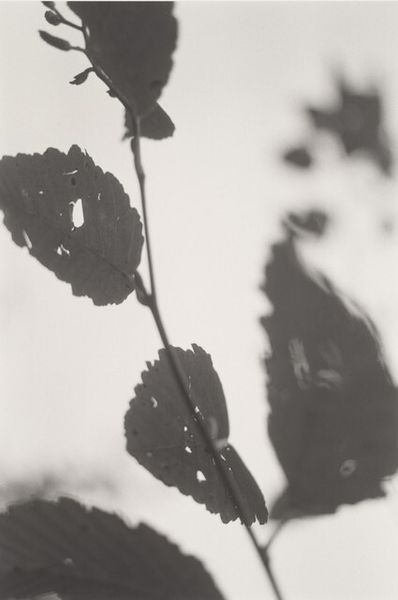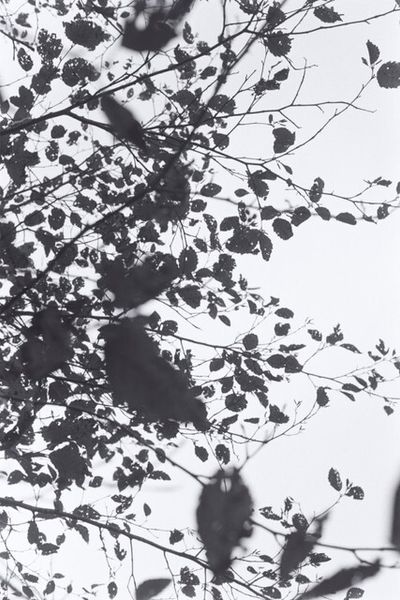
photography
#
branch
#
still-life-photography
#
natural shape and form
#
natural formation
#
landscape
#
nature
#
b w
#
photography
#
macro shot
#
abstract nature shot
#
macro photography
#
nature
#
natural form
#
nature closeup
Dimensions: image: 23.8 × 15.3 cm (9 3/8 × 6 in.) sheet: 35.4 × 27.9 cm (13 15/16 × 11 in.)
Copyright: National Gallery of Art: CC0 1.0
Curator: Robert Adams' "Neahkahnie Mountain, Oregon," a photograph from 2004. Editor: There's an austerity to it. Stark and yet delicate, with the sky almost bleeding into the leaves. Curator: Adams often worked in series, rigorously exploring specific landscapes and how we, as humans, shape them. He wasn’t just pointing a camera; he was documenting a process. What material processes or industrial changes do you imagine this photo captures? Editor: This particular work, though, makes me think more about temporality. The leaves, seemingly eaten away by insects—they speak to cycles of life and decay, of natural processes undermining even the most persistent growth. Perhaps that suggests how industry gradually transforms ecosystems as well, eating into it... Curator: Exactly. And his choice of black and white? It’s not a mere aesthetic preference. It directs our attention to form and texture, emphasizing the raw materiality of the natural world under duress. Do you see how the tones underscore a historical dimension, framing the environment within an evolving narrative? Editor: Yes. This makes me think about environmental justice. Who gets to enjoy this landscape? Who is impacted when it's scarred or changed? The image acts as a somber meditation on land usage, challenging us to examine our positionality regarding environmental responsibility and the disparities in climate-related issues across different populations. The mountain stands as a silent observer, bearing witness. Curator: This approach resonates powerfully, revealing a complex interplay. Editor: Definitely. It’s a call for recognition and maybe some action. Curator: Thanks to this perspective, the photograph prompts an ethical self-examination. Editor: Thank you. I feel my interpretation has opened my eyes to the social issues embedded here.
Comments
No comments
Be the first to comment and join the conversation on the ultimate creative platform.
